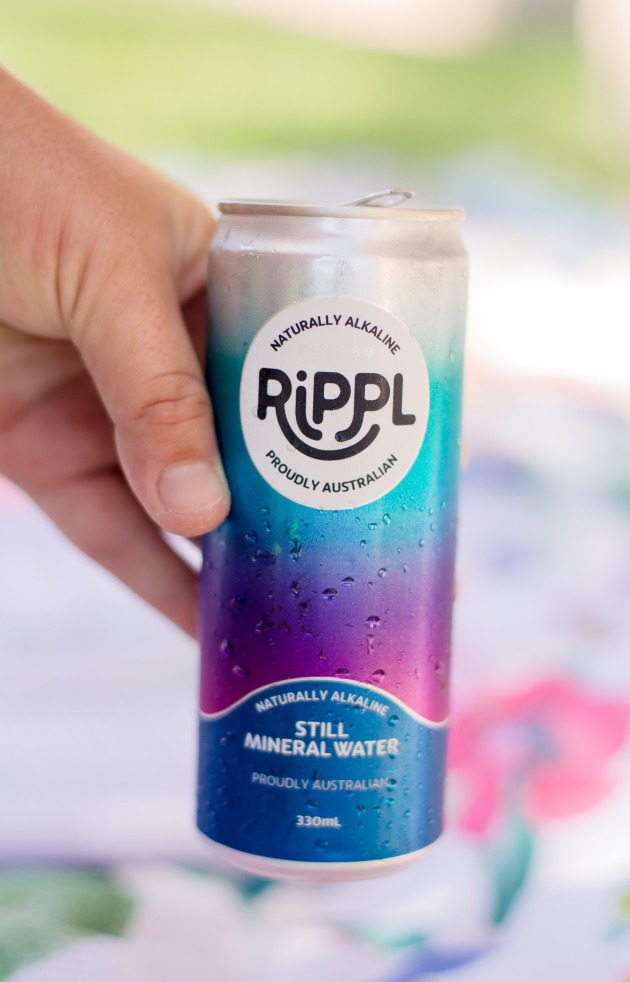RIPPL OFFERS ON-DEMAND CAN PRINTING WITH RUNS AS LOW AS 480
A new digital can printing business is up and running in Australia, with Rippl offering print runs as low as 480, outsourcing its printing onto a new locally installed $6m German digital printing line.

Rippl says the new digital print technology means it can print on minimum runs of just 480 cans, available in either matte or gloss finish.
According to Rippl the printing method “may be slightly more expensive than traditional methods”, but says it offers” unparalleled flexibility for reproducing "stunning high-resolution images and logos” on the cans.
The Rippl team collaborates with customers to mock up designs, finalise approvals, and then manages the entire process of printing the can sleeves, filling, and distributing the cans, all in Australia.
Rob Hilton, creative director behind Mammoth Brands, which owns Rippl, and who has 35 years of industry experience, said, “Our digital printing unlocks remarkable possibilities for brands to showcase high-quality, personalised images and logos. Whether it’s at corporate events or stocking custom cans in the office fridge for clients, personalised products put your brand directly into the hands of consumers.

“Tailored packaging is crucial for brand promotion, enhancing awareness and visibility, but when you can do it in a way that’s good for the environment, with our 100 per cent recyclable aluminium cans, and good for the consumer, you’ve hit the jackpot.”
While Rippl currently offers print on aluminium cans, it says it will soon expand to offer print on aluminium screw-top bottles.
Cans have become a growth area for beverages, as consumers veer away from plastic. Not only do aluminium cans have functional (lightweight) and aesthetic benefits (high print and graphics quality), cans are favoured because the material is infinitely recyclable. However, while the cans can be efficiently collected through kerbside recycling or the nationwide container deposit schemes (CDS), there is currently no aluminium recycling onshore in Australia. Plastic beverage containers, typically made from PET and collected via kerbside or CDS, do have a circular recycling infrastructure in the form of Circular Plastics Australia (PET), which has two plants operational, one in Altona, VIC and one in Albury, NSW.
The short-run customised can opportunity is not being lost on print and packaging businesses; among those investing in cans is Orora which has ordered a new high-speed, full-colour, digital can printing system called Velox, manufactured in Israel, and which should be operational in the third quarter of this year. In addition, OnPack, run by Michael Nankervis, has installed a Hinterkopf direct-to-can digital printing line last year. That will print 240 cans a minute, in up to nine colours, with CMYK, white, orange, green and varnish.

